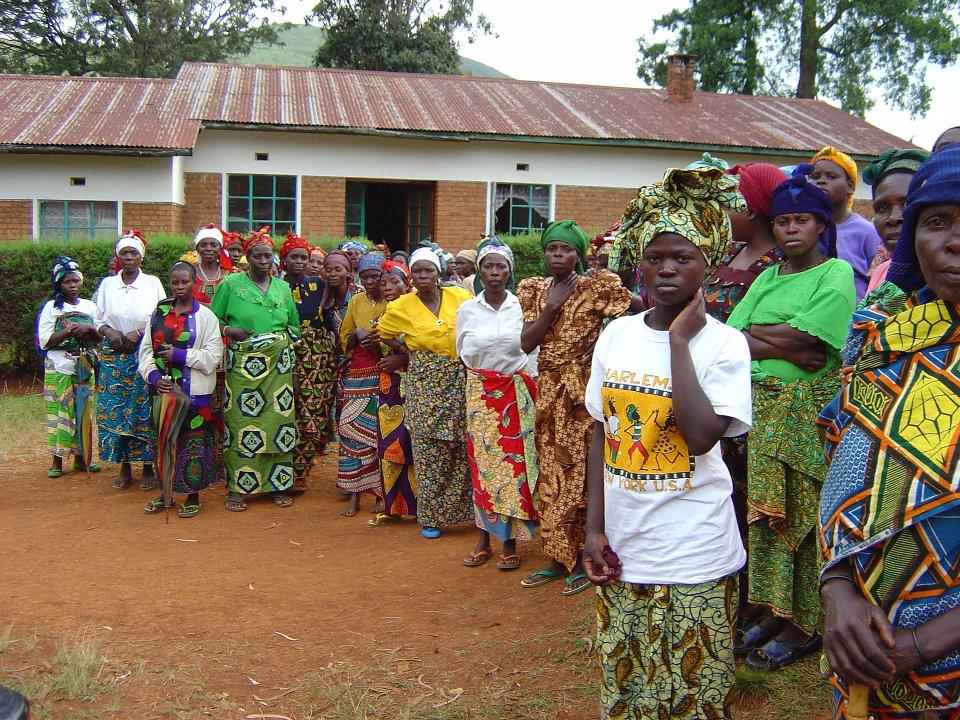
This report emerges from research carried out in the Democratic Republic of the Congo (DRC) between November 2013 and April 2014 by Si Jeunesse Savait and the Association for Progressive Communications (APC) as part of a multi-country project entitled “End violence: Women’s rights and safety online”.
With a population of over 70 million, the DRC is estimated to be Africa’s third most populated country, with a growth rate of 3.2%. While rich in minerals (diamonds, coltan, cassiterite, copper, zinc, uranium, etc.), the country is economically poor. More than 50 years after its independence, the country is plagued by armed conflict, and is often placed last in the human development index.1
Violence against women is a serious societal problem in the DRC. Armed conflict in the east of the country has exacerbated the violence to intolerable proportions, largely committed by combatants from the different parties, including the national army. A 2011 study conducted by The American Journal of Public Health revealed that 1153 women are raped every day.
The current Congolese legal framework is not satisfactory. As mapped by the local research team, aside two laws addressing alarming level of sexual violence committed by the army, there are no other laws that specifically target violence against women, including cases of marital rape or technology-related VAW.
Legal procedures related to violence against women are often the least known and most expensive. In fact, according to a survey conducted by Si Jeunesse Savait, a Congolese plaintiff spends about USD 1920 in lawyer fees in order to undergo the penal procedure (123 times the minimum wage).
The mobile phones are the main way for connecting to the internet, since most people in the country can not yet afford personal computers.
Consequently the mobile phones had also been the most frequently involved platform in the cases of technology-related VAW explored by the local research team. In all three of the cases, the survivors were victim to multiple acts of violence, either by the same person or different people who, for the most part, were in better control of the technology than the victims.
The report concludes with a series of recommendations to prevent and address technology-related violence against women in DRC. These include improved legislation on VAW, gender sensitisation of first responders, cutting on corruption, or development and dissemination of procedures for pressing charges.
This research is part of APC’s project “End violence: Women’s rights and safety online”, financed by the Dutch Ministry of Foreign Affairs (DGIS).
For more information about the multi-country research visit the research site
Image by Global Panorama used under Creative Commons license
Footnote:
1 World report on human development 2010, The true wealth of nations: The roads to development, UNDP.
With a population of over 70 million, the DRC is estimated to be Africa’s third most populated country, with a growth rate of 3.2%. While rich in minerals (diamonds, coltan, cassiterite, copper, zinc, uranium, etc.), the country is economically poor. More than 50 years after its independence, the country is plagued by armed conflict, and is often placed last in the human development index.1
Violence against women is a serious societal problem in the DRC. Armed conflict in the east of the country has exacerbated the violence to intolerable proportions, largely committed by combatants from the different parties, including the national army. A 2011 study conducted by The American Journal of Public Health revealed that 1153 women are raped every day.
The current Congolese legal framework is not satisfactory. As mapped by the local research team, aside two laws addressing alarming level of sexual violence committed by the army, there are no other laws that specifically target violence against women, including cases of marital rape or technology-related VAW.
Legal procedures related to violence against women are often the least known and most expensive. In fact, according to a survey conducted by Si Jeunesse Savait, a Congolese plaintiff spends about USD 1920 in lawyer fees in order to undergo the penal procedure (123 times the minimum wage).
The mobile phones are the main way for connecting to the internet, since most people in the country can not yet afford personal computers.
Consequently the mobile phones had also been the most frequently involved platform in the cases of technology-related VAW explored by the local research team. In all three of the cases, the survivors were victim to multiple acts of violence, either by the same person or different people who, for the most part, were in better control of the technology than the victims.
The report concludes with a series of recommendations to prevent and address technology-related violence against women in DRC. These include improved legislation on VAW, gender sensitisation of first responders, cutting on corruption, or development and dissemination of procedures for pressing charges.
This research is part of APC’s project “End violence: Women’s rights and safety online”, financed by the Dutch Ministry of Foreign Affairs (DGIS).
For more information about the multi-country research visit the research site
Image by Global Panorama used under Creative Commons license
Footnote:
1 World report on human development 2010, The true wealth of nations: The roads to development, UNDP.
Year of publication
2015
- 8056 views





Add new comment